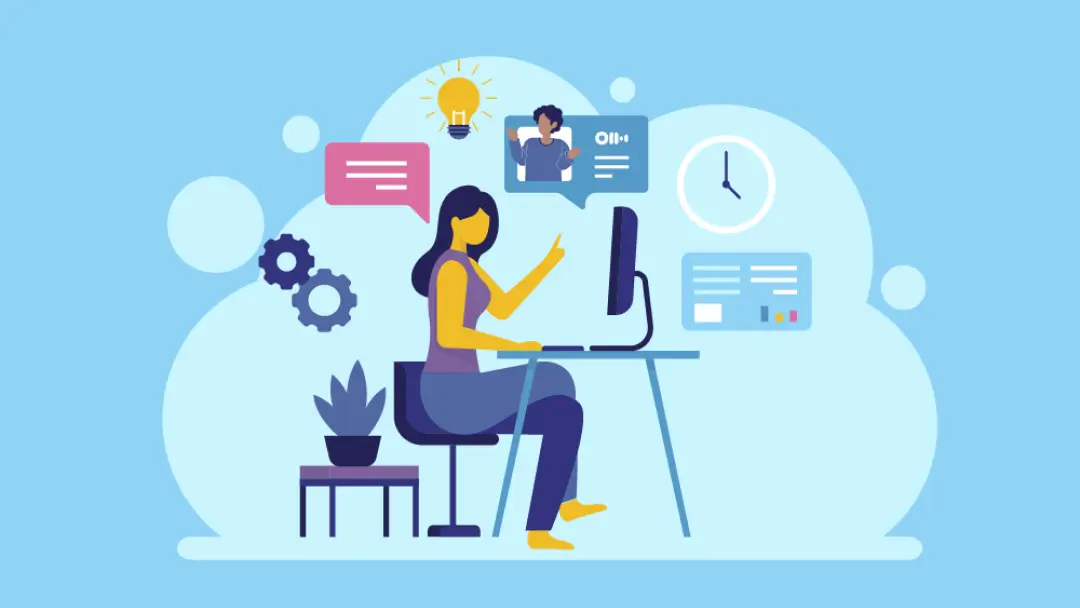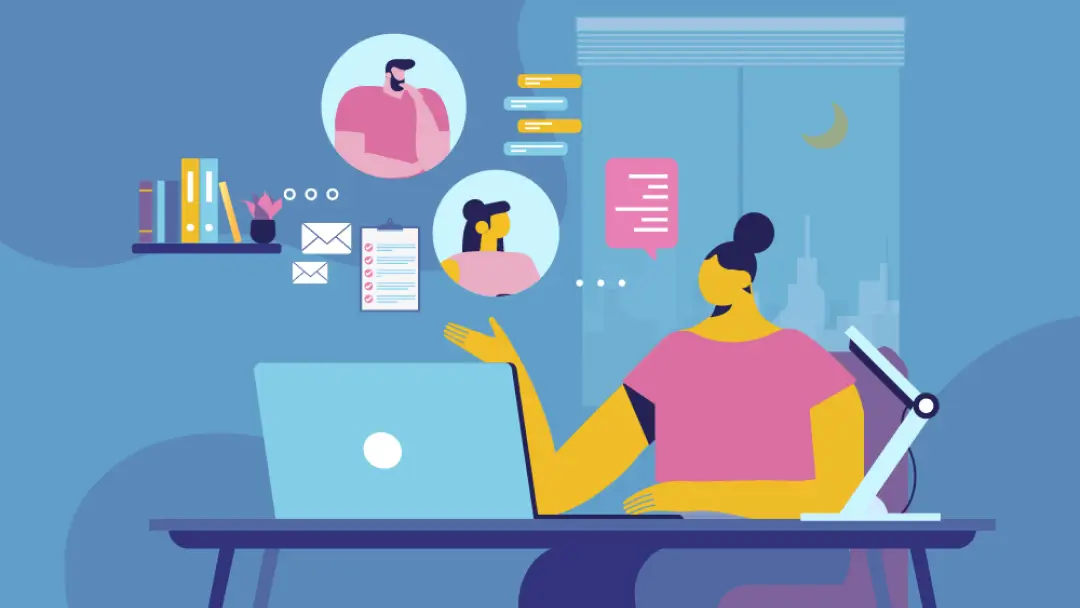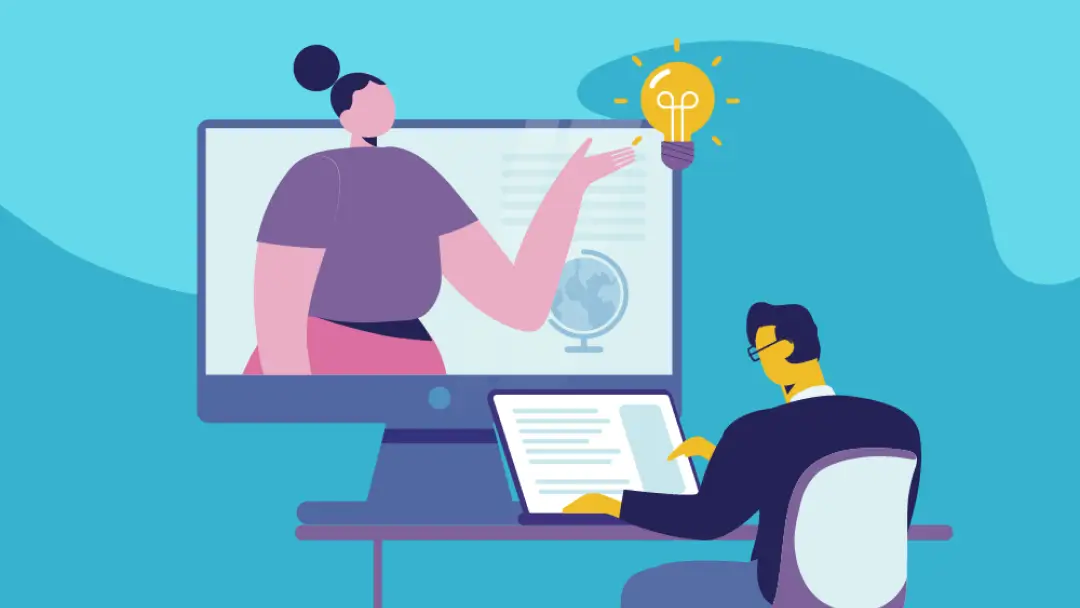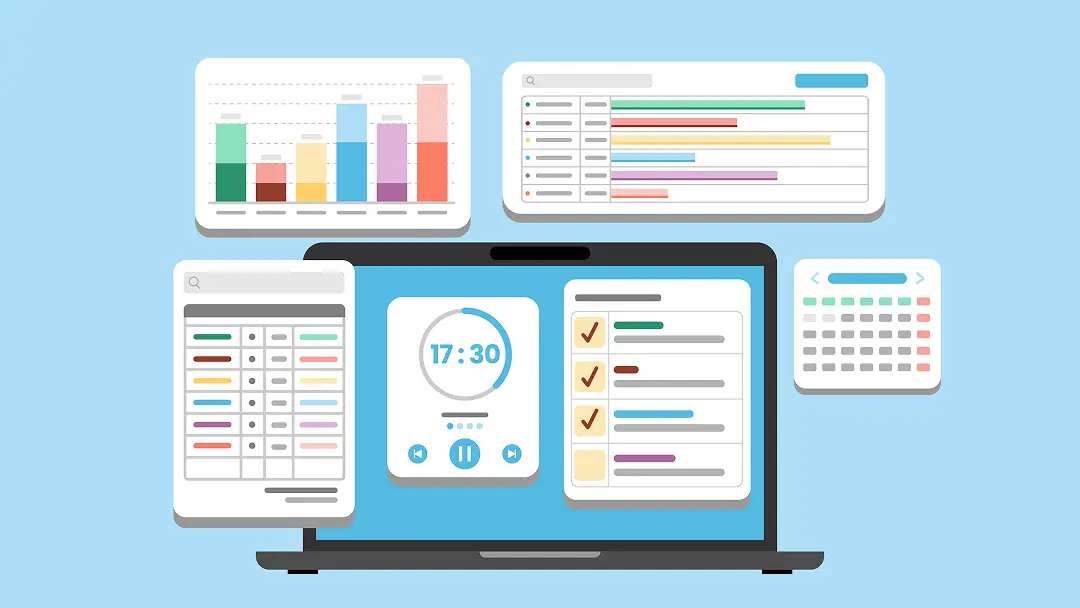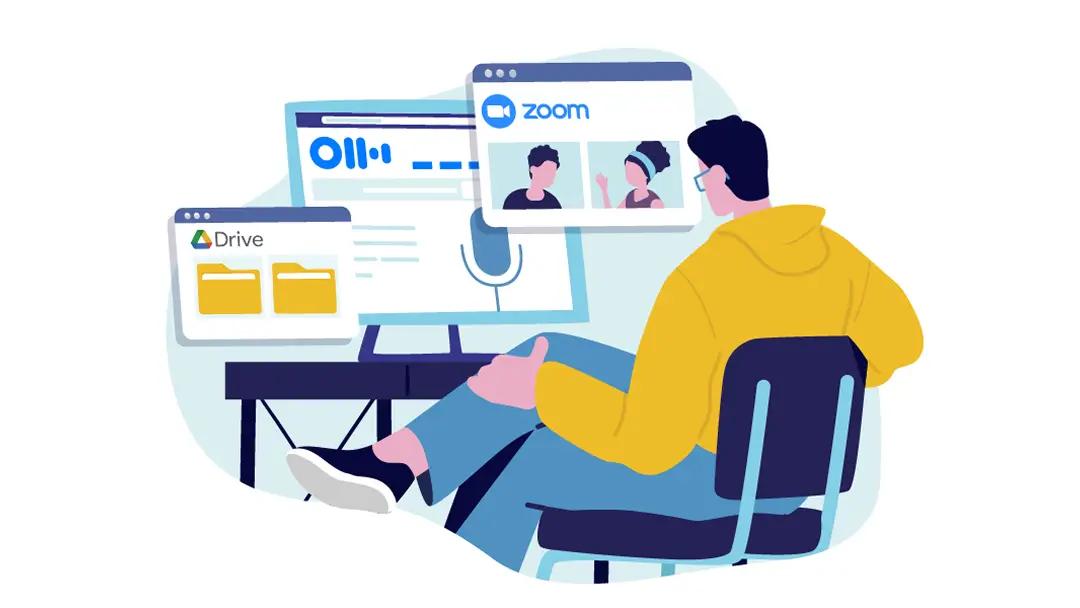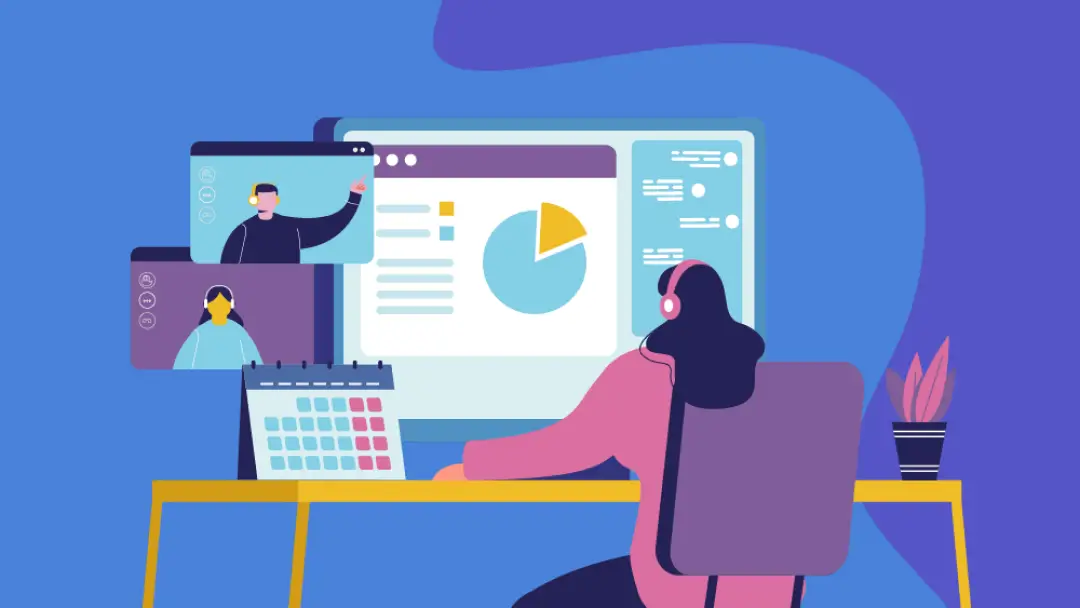Top 11 Productivity Hacks for 2021 (Hybrid or Remote)
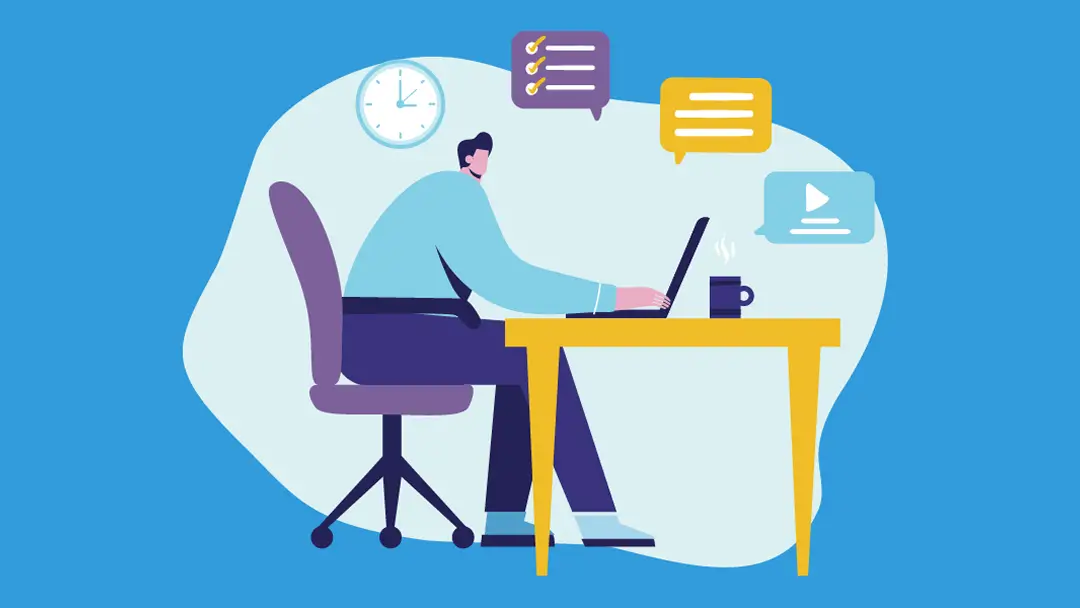
As many business owners and employees are learning, working remotely comes with its own set of challenges. Unfortunately, finding productivity hacks that actually work can also prove challenging. Oftentimes, consultants and “business gurus” recommend the same tired, ineffective methods to boost productivity that simply don’t work anymore.
When Standard Ways to Boost Productivity No Longer Work
If you are facing the challenges of working from home, you should always make sure to implement common-sense rules like:
- creating to-do lists
- making schedules
- organizing your calendar
- delegating
- setting the right work-life balance
- using the right project and task management tools, and so on.
However, these steps alone will not guarantee high productivity when your workforce is spread out in different regions and time zones. Instead, you need to encourage your remote workers to adopt new ways of boosting productivity that make sense in a decentralized work environment. So, let’s take a look at the 11 best productivity hacks for remote workers.
5 Best Productivity Hacks for Remote Workers
Workplace productivity takes on a whole new meaning when you work from home. You might have to deal with a plethora of distractions and situations that you wouldn’t encounter at a traditional office. However, we have 5 productivity hacks to help you get over the possible drawbacks of remote work:
Step away from work as needed

People often mistakenly believe that regular breaks reduce productivity. Somehow, it has become a common myth that working for long hours helps workers stay “in the zone” and keeps them focused on the task at hand. However, numerous studies have shown a strong correlation between productivity and lunch breaks, coffee or tea breaks, or really any kind of brief pause in work.
In fact, the method of relatively short work intervals separated by even shorter breaks has taken hold in companies across the globe. One popular trick is known as the “Pomodoro Technique,” in which workers focus on work-related tasks for 25 minutes at a time, followed by a 5-minute break. Once the break is finished, they return for another 25-minute work session. Over the course of an 8-hour workday, this accounts for a little less than 6 hours of focused work and a little more than 1 hour of relaxed breaks. These short breaks allow your brain to rest and decompress, giving you renewed mental stamina every time you return to your work duties.
Tidy up your workspace
Unless you happen to be very meticulous about workplace tidiness, you probably have a few desk drawers that need to be cleaned out and papers to be filed away. While taking time out of your workday to clean may sound counterproductive, it can actually help you feel more mentally connected to your work. Messy desks, loose papers, or items that are unrelated to your work can easily become a distraction when you’re trying to keep your mind on the task at hand.
So, make tidying up your workspace one of your new habits. You don’t need to do a deep clean (though you might consider it from time to time), but you should ensure that your desk and general work area remain free of clutter. If possible, try to clean up your workspace a few minutes before your workday officially begins so that you don’t have to take away from your work time and you can start your day out on the right foot!
Turn off notifications and other virtual distractions
Remote workers know better than most that it can be tough to completely disconnect from virtual life. Perhaps you use your personal phone for work or you simply struggle to separate your work life from your private life. In any case, leaving your notifications and personal applications on in the background can lead to constant interruptions.
While you may want to leave some messaging applications running for emergencies, you should absolutely turn off all non-essential notifications during work hours. There’s nothing that brings productivity to a halt like a phone or application that is constantly buzzing in the background. So, shut off Facebook and other social apps until you’ve clocked out for the day.
Know your distraction triggers and avoid them
For most people, smartphones and tablets are the most important distractions to avoid. However, turning off your devices or notifications does not mean that you’ll be free of all distractions. Maybe you’ve got the TV on while you work or family members walking in and out of your workspace. Depending on how well you can tune out these distractions, you may need to reevaluate how you work.
If you find yourself getting distracted by other people, there’s nothing wrong with setting rules and boundaries. You may need to find a place in your home that isolates you from others while you work. Similarly, you should try to separate yourself from other potential distractions, like television or video games.
Stop wasting time in meetings

To be clear, virtual meetings and phone calls are a necessary part of most remote jobs. However, not all meetings are created equal. If you feel like you spend an excessive amount of time in meetings, you are not alone. In fact, the numbers show that remote workers spend hundreds of hours every year just preparing for status update meetings. More than a third of remote workers report wasting at least 2 hours per day in meetings without accomplishing anything of significance.
So, what’s the solution? Though you can’t always have complete control over meeting itineraries (or how long meetings last), you can ensure that you keep your contributions concise and efficient. When you’re working, keep future meetings in mind, jotting down notes as you finish various tasks. This way, you won’t have to spend nearly as much time preparing for meetings and you can provide status updates without needing to look up a lot of information. Additionally, meeting managers can save time and help share meeting info more productively by implementing Otter Live Notes. These live transcriptions help keep people informed about what has been discussed — even if they weren’t able to attend the meeting.
6 Uncommon Productivity Hacks to Take Your Work to the Next Level
Now that we’ve covered the 5 best productivity hacks for remote workers, it’s time to look at a few uncommon productivity tips to implement in a remote position. While these may not be at the top of your priority list, implementing some or all of these productivity hacks at work will help you perform better and get the most out of your workday. Read on to learn how to increase your productivity with some less common life hacks:
- Get plenty of sunlight - Working in a dark room for hours on end can put a strain on your eyes and have a lasting effect on your health. Be sure to open up your curtains and, if you have time, use one of your breaks to take a walk outside. The fresh air and Vitamin D will boost your energy, enhance your creativity, and leave you ready to return to work.
- Find the right playlist - Many people find music to be both relaxing and a great way to stay entertained without getting too distracted. However, finding the right playlist for you is key. Oftentimes, keeping your favorites (without lyrics) playing in the background can keep you from getting distracted with less productive forms of entertainment. You might even find that ambient sound or white noise can help drown out more distracting background noise.
- Reduce your work hours - Productivity is closely linked to your general energy levels. While you may think that working more hours from Monday to Friday (or even over the weekend) will help you get more done, it frequently has the opposite effect over the short-term and the long-term. If you feel burnout in your off time, consider decreasing your work hours or taking more frequent breaks.
- Exercise and manage chores before work - When you have a lot of personal chores piling up, it can really distract you from your work. Rather than saving your chores for the end of the workday, try to knock out at least one or two chores before you start working. Another way to boost your energy is to get in a quick workout in the morning. This will not only help you stay in shape, but it can help ensure that you don’t allow a sedentary lifestyle to take away from your productivity.
- Organize your schedule around your circadian rhythm - Everyone’s circadian rhythm (or sleep-wake schedule) is a little bit different. Fortunately, remote work often gives you more freedom to determine when you work. So, if you don’t feel energetic until certain parts of the day or night, be sure to adjust your schedule to finish your most important meetings and tasks at specific times.
- Reduce your perfectionism - Some may see perfectionism as a plus, but it often results in countless hours spent on insignificant details. At the end of the day, it’s better for a task to be done than to be perfect. True perfection is impossible, so rather than getting hung up on small issues, focus on finishing tasks promptly.
Conclusion
Having a productive day is not just about doing a good job. It’s also about showing your team that you are accountable and responsible for your work duties. Fortunately, there are plenty of ways to boost your productivity without draining your energy or taking away from your downtime. By combining these tips with some of your own favorite productivity hacks, you can be sure that your work performance will improve going forward.
More ways to improve your or your team’s productivity with Otter.ai




